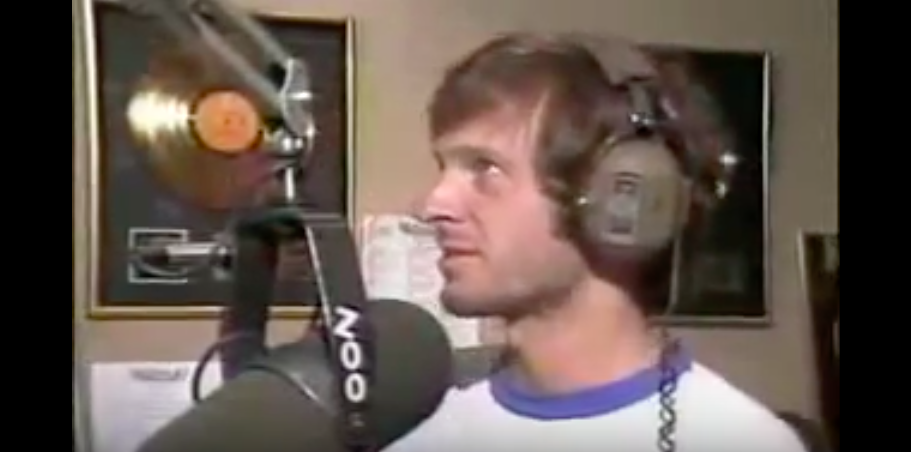It was 15 years ago this summer that John LaBella — a famous Dallas broadcaster, a funny and loyal friend and a Lake Highlands father — was forever silenced when a freak freeway accident ended his life. We wrote about LaBella and his influence on today’s biggest local radio personalities in our June 2016 package about Lake Highlands legends who have left us.
Lake Highlands legends: John LaBella
The first time Dallasites missed John LaBella was in early April, 1986, when he left his job as radio DJ at KZEW 98 FM, the Zoo, that hard-rocking station whose logo’s blue wings and gold lettering — once plastered on bumpers and T-shirts aplenty — is forever emblazoned on many a middle-aged mind.
“His departure marks the end of an era,” lamented the local press who covered LaBella’s April 2 going-away party. He and Zoo co-host John Rody wore matching pink tuxedos that night — a decade later a similar bit featuring Jeff Daniels and Jim Carey in “Dumb and Dumber” would garner giggles galore. Like many pranks, jokes and ironies of the past couple decades, these guys did it first.
In their initial two years at the station “they became the most listened to rock ‘n’ roll morning show in the entire Southwest,” noted a TV reporter in 1982, who gushed about their unique brand of “banter and repartee.”
There is no doubt working with him and Rody had a tremendous influence on what I think of this business. I cannot attempt to explain the impact they had on me and how I looked to [John as an example of] what we all are supposed to do. He was the consummate professional radio announcer, he did a super job and sounded great doing it.
Twenty years later, LaBella had evolved into a permanent auditory fixture in the lives of many, though he spread his wit, wisdom and broadcasting acumen around. There were FM stations KZPS, KRRW, KBFB and, finally, KMEO, Memories 96.7, which he helped launch in 1998.
It was while driving home from his shift there that, at age 52, LaBella’s ubiquitous voice was forever quieted.
A freak accident March 4, 2002 on Interstate 30 left his family, friends and fans devastated. LaBella died instantly when a piece of a forklift fell from a truck into oncoming traffic, striking his car.
Radio personality Mike Rhyner, founder of KTCK The Ticket, played the yuk-monkey role supporting LaBella and Rody at the Zoo.
LaBella’s death sickened him, he says.
“That something like that would happen to him, of all of us, it was nearly impossible to wrap our heads around,” Rhyner says. “He was a sweet, gentle guy. Can’t think of a person who didn’t like him. He held no ill thoughts toward anyone. He was private, he probably did very well financially but you wouldn’t know it — he lived in one bedroom on Melody Lane and drove a red Volkswagen. A couple margaritas would have been an indulgence for him.”
The 1980s media called LaBella and Rody “irreverent underdogs” — a title that can easily be used to describe the talent at The Ticket, whose cheeky humor is clearly a nod to the old Zoo hosts.
“There is no doubt working with him and Rody had a tremendous influence on what I think of this business. I cannot attempt to explain the impact they had on me and how I looked to [John as an example of] what we all are supposed to do,” Rhyner says. “He was the consummate professional radio announcer, he did a super job and sounded great doing it.”
Residents of Lake Highlands, the neighborhood where LaBella and his family lived before his death, remember waking up with him.
“He came out of my radio every morning,” notes Scott Johnson.
And others knew him as a fellow parent at White Rock Elementary.
“I used to talk to him while we waited for our daughters to get out of school for the day,” Susie Logee Dale recalls. “He was so humble, I didn’t know who he was until my husband told me. When I mentioned this to John he said, ‘Yes, I’ve done a little radio work.’ But he was a genuine Dallas phenomenon at one time.”
The inadequately licensed truck operator responsible for LaBella’s death pleaded guilty later that year to criminally negligent homicide, stating publicly that he was “devastated” about the accident.
“I don’t know how to describe it — it’s … unbelievable,” he told the Dallas Morning News in December 2002.
“People cast aside their grievances — and there were some major grievances, we are talking some extreme, outsized personalities in this business — for that day,” he says. “It was one of the few things that brought everyone together.”






